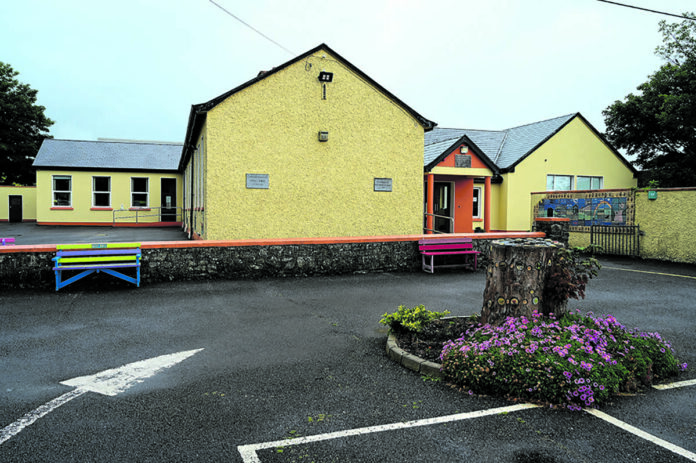CLARE County Council has given approval for a multi million euro biomass combined heat/power plant in Stonehall, despite numerous objections including one from the local national school.
Carbon Sole Group Ltd received planning permission for the development, which will also include a gasification and methanation plant for the production of advanced biofuels and a thermal energy recovery and storage facility for district heating distribution. The company claims it is an environmentally friendly development, which will benefit the local area.
While the County Council have now approved it, it is open to those in opposition to appeal the decision to An Bord Pleanála, and given the volume of objections, it seems very likely this will happen.
The site in question was owned by the Shannon Airport Authority at the time planning permission was sought, but in a letter to the Council, it said it had agreed to sell it to Carbon Sole.
In a video on the Carbon Sole website, CEO Sean Daly claimed that the development would offset over one million tonnes of carbon over 15 years, while providing carbon free heating to businesses and potentially homes in Shannon, which could result in cost savings for householders and increased property values.
Mr Daly also said the development will result in millions of euro being spent on local forestry, while 48 people will be employed at the plant, with another 100 jobs created in harvesting and haulage.
Sixty to 80 people would be employed during the construction phase. However despite the rhetoric from the company, many residents of the surrounding area are opposed to the development and numerous objections were made, including one by a group called Clean Air Shannon, which was signed by several hundred people.
This objection claimed, “The proposed development is, having regard to its size and nature of its operation, not suitable or appropriate development on the proposed site.
It added that “The operation of the proposed development will lead to the emission of polluting substances into the air thereby creating a risk to public health and damage to the environment.”
The objection also said that “The operation of the proposed development will lead to the emission of ash into the air creating a risk to public health and damage to the environment. Further, given the proximity of the proposed development to the runway at Shannon Airport and the accepted position that ash in the air can cause interference with engines on jet aircraft, the proposed development may pose a risk to jet aircraft using Shannon Airport. In this regard it is submitted that the Airport constitutes strategic infrastructure of local, regional and national importance.”
It claimed that “The operation of the proposed development involves the combustion of biomass resulting in the creation of biomass ash. The mechanism of disposal and end destination of the said biomass ash represents a potential environmental hazard.”
It added that the development is likely to impact on rare, threatened and protected species and that it would adversely impact upon Designated Natura 2000 sites.
Senator Timmy Dooley was another who had made an objection. In his submission he stated “No consideration has been given to such a facility in close proximity to a national school.”
He added that “No consideration has been given to the emissions from such a plant and the impact it will have on the particle matter concentration in the air, and such potential to be harmful to health of those living in the town of Shannon.”
Stonehall National School objected and claimed that the development “will lead to the emission of polluting substances and ash into the air”.
Its submission also said that “The school has, for a number of years, and continues, to promote a policy of encouraging pupils to walk and/or cycle to and from school.
“The development, as proposed, envisages a significant increase in vehicular traffic to and from the proposed site and in particular significant increased movements of heavy goods vehicles during both the construction and operation phase of the development and these vehicles thereby increase in a very significant way the traffic hazard to students walking and/or cycling to and from school.”
The planner’s report which recommended granting planning permission, said, “The proposed development is for a biomass gasification, methanation, combined heat and power production plant and batter storage facility on a site extending to 3.5 hectares.
“The facility will have the capacity to convert approximately 70,000 dry tonnes of forestry woodchip per year (approximately 133,000 tonnes of wet/green chip). The 70,000 tonnes of dry biomass will generate up to 32 MW of green energy per year (which comprises 13 MW of advanced biofuel biomethane, 14MW heating and 5MW electricity.”
It recommended that planning permission be granted subject to 14 conditions, one of which requires noise from the plant to be limited.
On its website Carbon Sole says that there will be 24 truck loads of woodchip required per day, spread over eight hours. Mr Daly claimed that this isn’t an excessive amount of extra traffic and said it will only access the site from a main road.
The company also said that they have downsized their original plans, in response to feedback from people living in the area.
“The revised design is smaller in scale producing 5MWe of electricity and 14MWth of heat, this is 20% of the electricity and 35% of the heat of the previous proposed development. It is a move away from a woodchip steam boiler to a woodchip gasification plant that essentially ‘bakes’ the woodchip thermally cracking it to produce a rich syngas, a biogas. It is also more modular, with smaller buildings for specific processes, producing carbon neutral green energy products.”
Owen Ryan has been a journalist with the Clare Champion since 2007, having previously worked with a number of other publications in Limerick, Cork and Galway. His first book will be published in December 2024.


